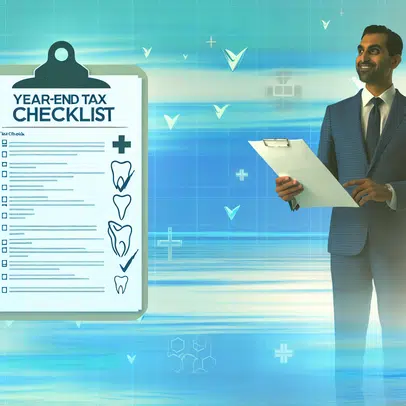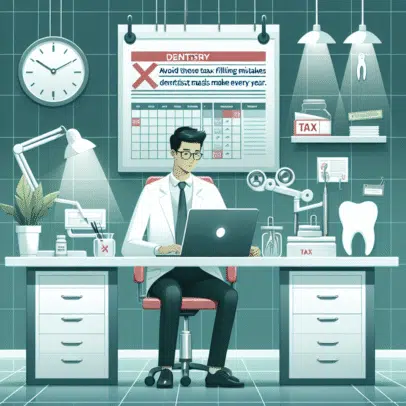Maximize Tax Savings for Dentists Across the United States
If you’re a dentist practicing anywhere in the United States, you’re probably putting in long hours managing patients, staff, and your practice. But when tax season rolls around, are you also doing everything you can to hold onto more of your hard-earned money?
Tax strategies aren’t just for big corporations – even a solo dental practice can benefit from smart financial planning. Let’s explore a few practical ways you can maximize your tax savings as a dentist, no matter where you live or work.
1. Understand the Power of Deductions
One of the easiest ways to reduce your tax bill is through deductions. But many dentists leave money on the table simply because they don’t know what they can deduct.
Common tax deductions for dentists include:
- Dental supplies and equipment – From gloves to X-ray machines, many of your tools are deductible.
- Office space expenses – Lease payments, utility bills, and even part of your internet costs can count.
- Continuing education – Taking a course to sharpen your skills? Save that receipt.
- Professional dues and insurance – Memberships and malpractice insurance are often deductible too.
It’s worth reviewing your yearly expenses with a tax professional to make sure you’re not missing out.
2. Use S-Corporation Structures to Your Advantage
If you’re an independent dentist or run your own practice, switching to an S-Corp could lower your tax burden significantly. Here’s how:
As an S-Corp, you can pay yourself a “reasonable salary” and take the rest of your business income as a distribution, which is not subject to self-employment taxes. This simple move can save thousands if done correctly.
Of course, every situation is different, so it’s smart to discuss this strategy with a CPA who understands dental practices.
3. Start a Retirement Plan (and Save More)
Here’s a win-win: setting up a retirement plan helps you save for the future and reduces your taxes now. Dentists often have access to powerful plans like:
- SEP-IRA
- Solo 401(k)
- Defined benefit pension plans
Each of these comes with high contribution limits, meaning the more you save, the more you can deduct on taxes. It’s like paying yourself instead of the IRS.
4. Hire Family Members
This tip may sound unusual, but many dentists with small practices hire their spouses or teenagers to help out. Whether it’s handling phone calls or filing charts, their wages become a business expense.
Plus, it’s a great way to keep money within the family and teach kids about financial responsibility. Just make sure you’re paying a fair wage and keeping appropriate records.
5. Work with a Dental-Savvy CPA
It’s tempting to download a tax app and do it yourself. But dentists have unique tax situations. A CPA who specializes in dental practices can make sure you’re taking full advantage of all options available to you.
Does your CPA ask about Section 179 deductions or research and development credits? If not, it may be time to upgrade.
Final Thoughts
Running a dental practice takes time, energy, and a whole lot of expertise. Don’t let your hard work go to waste by overpaying on taxes. By learning about your options and making a few simple changes, you can maximize tax savings and keep more of your earnings.
So, what’s the next step? Maybe it’s calling a CPA, reviewing last year’s deductions, or setting up a retirement plan. Whatever you choose, start today – your bank account will thank you tomorrow.




